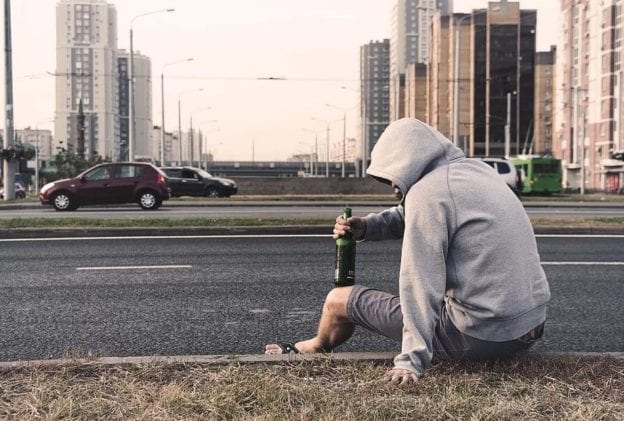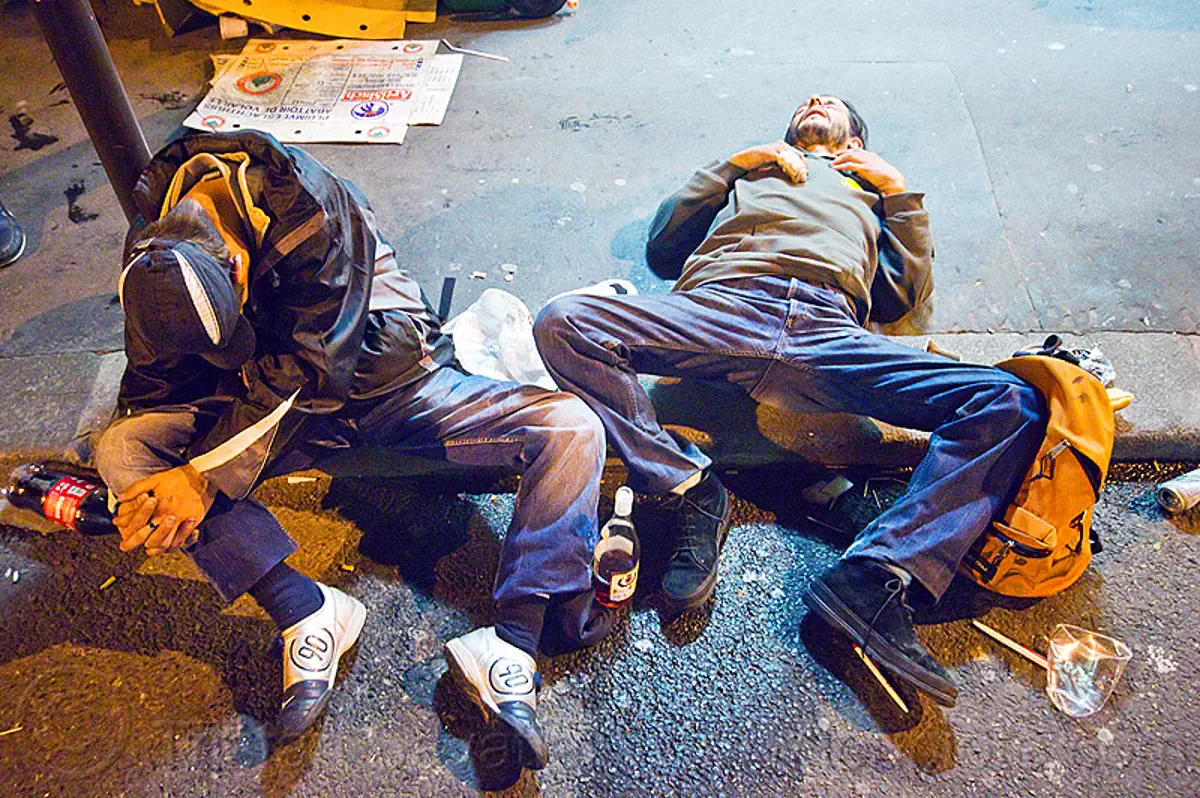Public intoxication and intoxicated behavior are often used equally. Both imply that someone was drunk or high in front of others. Public intoxication is usually a misdemeanor; however, you may be in more trouble if there are other charges, like criminal harm.
Still, authorities often use this charge against people they believe are drunk yet can’t use different charges against. Plenty of people like going out; occasionally, their fun includes drinking.
But there are instances when drinking leads to the cops being called and severe charges. Being caught and charged with being drunk in public isn’t anything minor.
Table of Contents
ToggleWhat Is Public Intoxication?
You will indeed get jailed and fined if you’re drunk in public. Public drunkenness is an alcohol-related misdemeanor that includes getting drunk or high in a general area.
For public drunkenness to be unlawful, the drunken person requires a blood alcohol content (BAC) above 0.08%. When somebody is “publicly drunk” or “high and disorderly,” they often trouble others with their aggressive, violent, or startlingly irrational actions.
What Are The Aspects Of Being Drunk In Public?
Depending on where a person is arrested, the elements of evidence for an illegal public intoxication case can be different. The majority of the time, though, public intoxication will involve the same kinds of things that are mentioned below:
- The person was somewhere in a public area when the crime was committed.
- The person didn’t seem to be able to manage what they were doing, so as a result, they were a danger to those near them.
- The person was either under the effect of drugs, booze, or a different banned substance, or it looked like they were.
It is essential to remember that only some countries need evidence of the second aspect. Therefore, in those countries, the prosecutor will have only to show that the accused individual looked drunk or out of control in a public place.
What Are The Potential Legal Repercussions Of Being Drunk In Public?
Several of the potential legal effects, when you’re drunk in public, are:
- A Lasting Criminal Record
- A Prison Term Or Jail Punishment
- Probation Or Parole
- Criminal Fines
- Alcohol Education Classes Could Be Required
Public intoxication often leads to a fine. Public intoxication may cost $100 to $1,000. Don’t simply pay the cost to avoid court.
People plead guilty and forfeit their right to defend themselves by paying this fee. A person charged with public intoxication should see a criminal lawyer quickly to understand the law.
Are There Ways To Fight Charges Of Being Intoxicated In Public?

A charge of public drunkenness may have serious effects, particularly if it’s added to another charge, like unruly behavior or criminal harm. Although public intoxication is a violation in many places, the fines can stay on your criminal history for years.
Many judges also want you to go to an alcohol recovery center if you are found guilty. Due to things that made things worse, punishments might become harsher.
For instance, you may face a stricter term when you have a criminal record or have been charged for intoxicated or disorderly behavior.
In certain places, a third offense of drunkenness in public is called “aggravated public intoxication,” and the sentence may include up to two years in prison.
But you and your lawyer may devise many ways to defend yourself if you get accused of being drunk in public. Several instances are:
- You got taken into custody when you were in a private place.
- Being drunk in public isn’t a crime in the area where you got arrested.
- You weren’t drunk, and you didn’t act like you were.
- Your behavior was because you took your medicine as advised.
- You got accepted into custody after cops pushed you to a public area.
How To Avoid Public Intoxication
It’s vital to your security, health, and image that you don’t get drunk in public. Here are some ways to avoid drinking:
- Eat Before You Drink: This will take the booze to get into your system longer. This makes it less probable to get drowsy quickly.
- Set Your Boundaries: Learn how much booze you can take and manage yourself properly. Carefully and gently drinking keeps you from getting intoxicated.
- Swap With Non-Alcoholic Drinks: for each boozy drink, sip water, juice, or soda. This can assist you in staying hydrated while helping you drink less booze.
- Stay With Close Companions: Surround yourself with people who can look out for you and stop you from overdoing it. They may keep you on track and make sure you stay safe.
- Schedule Your Transportation: Before you go out, hire a sober driver, employ public transportation, or get a rideshare app handy. Never drive if you’ve been drinking.
- Don’t Play Drinking Games: Enjoying drinking games leads to gulping excessive booze down. It’s ideal to say no or pick something that doesn’t require drinking.
- Leave The Setting If You Have To: Be bold and leave the setting when you feel intoxicated or uneasy.
- Be Aware Of How Strong The Drinks You Drink Are: Certain drinks, like shots and cocktails, may have plenty of booze, making it easy to get drunk.
- Be Aware Of Your Feelings: Don’t use alcohol to cope with stress, worry, or other emotional problems. Find alternatives to cope with emotions.
- Learn The Rules And Laws: Find out what laws apply to your area about getting drunk in public. In certain areas, it is against the law to be intoxicated in public; if you do, you may get in trouble with the law.
- Don’t Mix Drugs: Mixing drugs and alcohol could raise your risk of becoming intoxicated.
Conclusion
Intoxication in public is typically a misdemeanor. Someone discovered intoxicated in public could end up fined, paroled, or assigned to an alcohol rehab clinic. It’s unlikely you’ll go to prison.
You’re arrested for being intoxicated and misbehaving. In this instance, a public intoxication defense lawyer may assist you in fighting the charge. Upon discussing the details with you, a lawyer will have an idea of how to help.

I am a passionate beer connoisseur with a deep appreciation for the art and science of brewing. With years of experience tasting and evaluating various beers, I love to share my opinions and insights with others and I am always eager to engage in lively discussions about my favorite beverage.
















